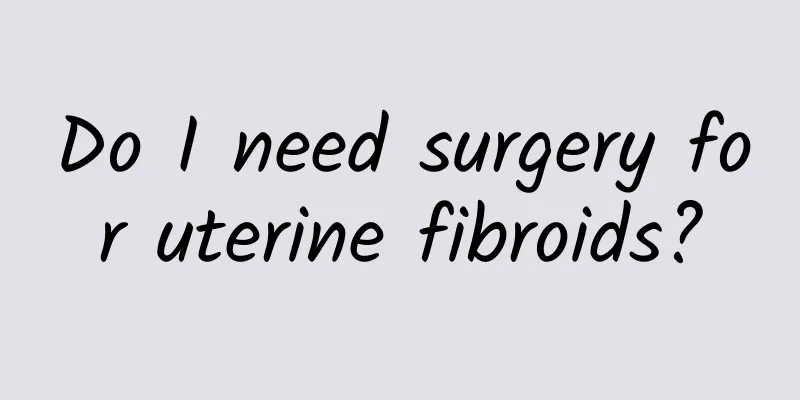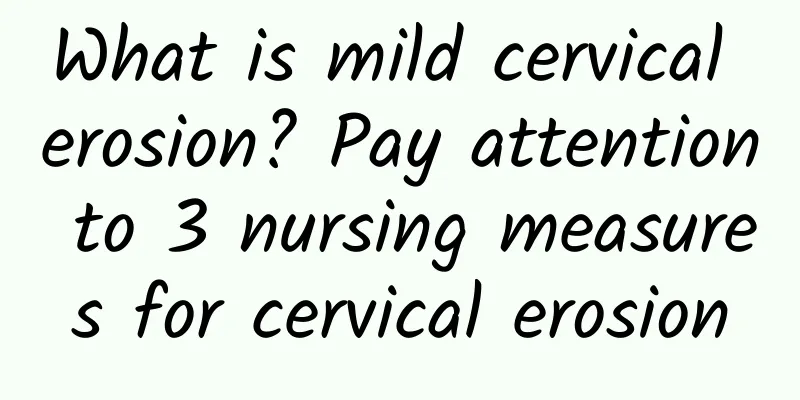Do I need surgery for uterine fibroids?

|
Uterine fibroids are common benign tumors of the female reproductive tract. Generally, if surgery is required, there are indications for surgery. Uterine fibroids can cause menorrhagia, secondary anemia, severe abdominal pain, dyspareunia or chronic abdominal pain, and acute abdominal pain caused by torsion of pedunculated uterine fibroids. Uterine fibroids are large in size and compress the bladder and rectum, causing corresponding symptoms. Uterine fibroids can cause infertility or repeated miscarriages and may lead to sarcoma. There are two surgical methods. One is uterine myomectomy, which is suitable for those who wish to retain fertility, and the other is total hysterectomy, which can be performed for those who do not want to retain fertility or who suspect malignant changes. What to eat after uterine fibroid surgery Surgery for uterine fibroids is traumatic to the body, so after the surgery, you should eat more foods high in protein to promote wound healing. In addition, if you have anemia after the surgery, eat more lean meat, liver, animal blood and green vegetables. Because these foods are high in iron and can effectively replenish blood. In addition, you should pay attention to rest after uterine fibroid surgery. Generally, you need to rest for a month before you can go back to work normally. Precautions after uterine fibroid surgery It is forbidden to have sex within one month after uterine fibroid surgery. You must go to the hospital for a checkup one month to see how the uterus recovers. It is forbidden to take a tub bath within one month after uterine fibroid surgery. You cannot engage in heavy physical labor after uterine fibroid surgery. You must rest more. You must go to the hospital for a checkup one month after fibroid surgery to see how the stump recovers. You must pay attention to rest more after uterine fibroid surgery. If bleeding occurs, you must go to the hospital for symptomatic treatment. After uterine fibroid surgery, you must take good anti-inflammatory and symptomatic treatment to prevent infection and adhesion. Therefore, after uterine fibroid surgery, you must follow the above precautions for care, pay attention to rest more, and don't be too tired. If there are special circumstances, you must go to the hospital for a checkup. |
<<: Is pelvic effusion accompanied by abdominal pain?
>>: How to perform an abortion
Recommend
What are the early symptoms of ectopic pregnancy?
What are the early symptoms of ectopic pregnancy?...
Does adenomyosis cause frequent urination and pain?
Does adenomyosis cause frequent urination and pai...
Symptoms of uterine fibroids How to treat uterine fibroids
The exact cause of uterine fibroids is still uncl...
What treatments should be used for irregular menstruation in adolescence
What treatment is used for irregular menstruation...
Where is the best hospital for pelvic peritonitis?
In the treatment of pelvic peritonitis, many pati...
Is congenital absence of vagina serious?
Are the dangers of congenital absence of vagina s...
The dangers of Bartholinitis
At present, with the continuous improvement of hu...
What are the causes of endometrial tuberculosis infection?
Endometrial tuberculosis is mostly caused by infe...
How to treat cervical erosion for unmarried women? 5 treatment methods for cervical erosion in women
In life, cervical erosion is very aggressive and ...
Can an ovarian cyst go away on its own?
Can ovarian cysts go away on their own? Typical s...
The difference between female adnexitis and pelvic inflammatory disease
Adnexitis is a common disease caused by pathogeni...
What are the precautions after painless abortion? Let's take a look
If you have a painless abortion, you need to pay ...
How to treat cervicitis effectively
Cervicitis can be effectively managed with medica...
What are the characteristics of cervical precancerous lesions?
What are the characteristics of cervical precance...
Damage to the cervix can lead to cervical hypertrophy in women
Cervical hypertrophy has always been a common dis...









